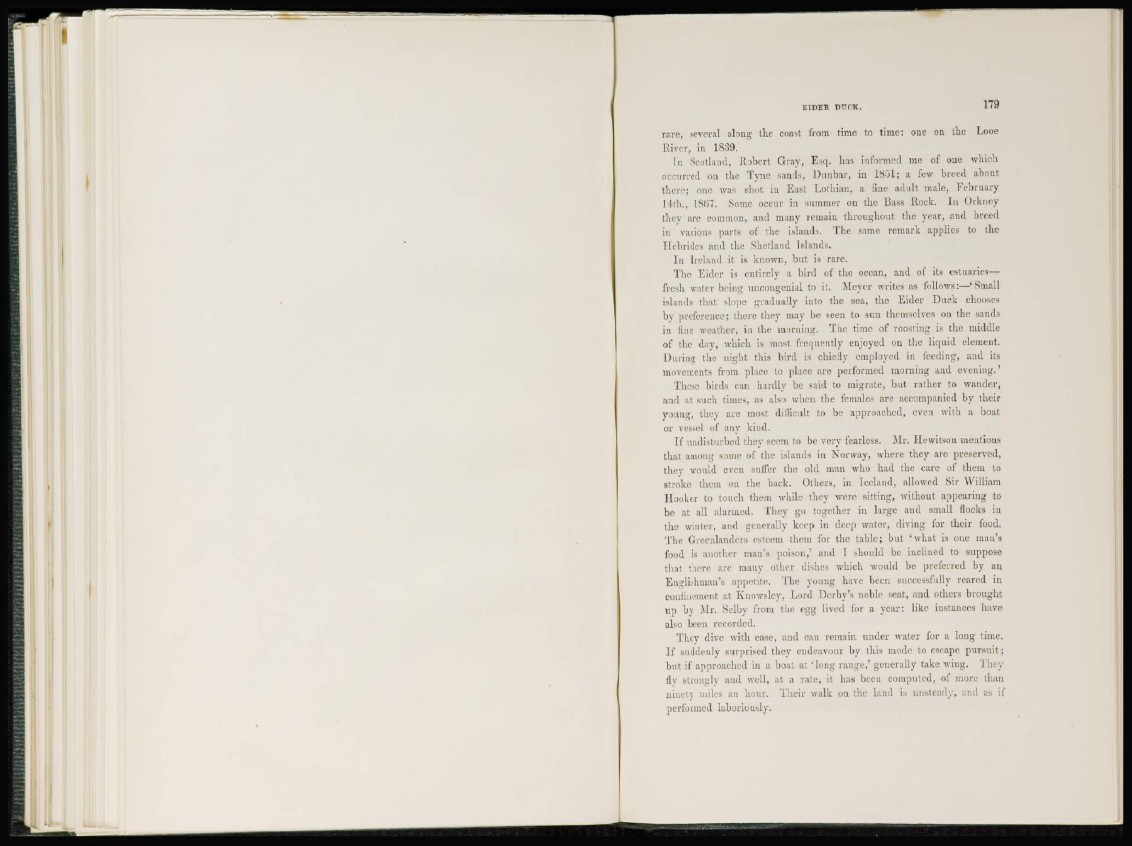
rare, several along the coast from time to time: one on the Looe
River, in 1839.
I n Scotland, Robert Gray, Esq. has informed me of one which
occurred on the Tvnc sands, Dunbar, in 1851 j a few breed about
there; one was shot in East T.othian, a line adult male, February
14th., 18t>7. Some occur in summer on the Bass Rock. In Orkney
they are common, and many remain throughout the year, and breed
in various parts of the islands. The same remark applies to the
Hebrides and the Shetland Islands.
I n Ireland it is known, but is rare.
The Eider is entirely a bird of the ocean, and of its estuaries—
fresh water being uncongenial to it. Meyer writes as follows:—'Small
islands that slope gradually into the sea, the Eider Duck, chooses
by preference; there they may be seen to sun themselves on the sands
in fine weather, in the morning. The time of roosting is the middle
of the day, which is most frequently enjoyed on the liquid element.
During the night this bird is chiefly employed in feeding, and its
movements from place to place are performed morning and evening.'
These birds can hardly be said to migrate, but rather to wander,
and at such limes, as also when the females are accompanied by their
young, they are most difficult to be approached, even with a boat
or vessel of any kind.
If undisturbed they seem to be very fearless. Mr. Hewitson mentions
that among some of the islands in Norway, where they are preserved,
they would even suffer the old man who had the care of them to
stroke them on the back. Others, in Iceland, allowed Sir William
Hooker to touch them while they were sitting, without appearing to
be at all alarmed. They go together in large and small flocks in
the winter, and generally keep in deep water, diving for their food.
The Grccnlauders esteem them for the table; but 'what is one man's
food is another man's poison,' and I should be inclined to suppose
that there arc many other dishes which would be preferred by an
Englishman's appetite. The young have been successfully reared in
confinement at Knowslcy, Lord Derby's noble seat, and others brought
up by Mr. Selby from the egg lived for a year: like instances have
also been recorded.
They dive with ease, and can remain under water for a long time.
If suddenly surprised they endeavour by this mode to escape pursuit;
but if approached in a boat at 'long range,' generally take wing. They
fly strongly and well, at a rate, it has been computed, of more than
ninety miles an hour. Their walk on the laud is unsteady, and as if
performed laboriously.